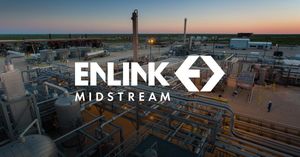The automotive industry is facing turbulent times as the United Kingdom navigates its transition to electric vehicles (EVs). The recent announcement about the impending closure of Vauxhall's production facility in Luton shines a spotlight on the pressing challenges both manufacturers and policymakers face. With approximately 1,100 jobs at risk, this closure reflects the tension between ambitious environmental regulations and the realities of market conditions. Industry leaders are calling for greater flexibility and adaptability as they grapple with the fast-changing EV paradigm.
Why is this shift toward EVs creating such upheaval? Vauxhall, now under the Stellantis umbrella, attributes its difficulties to several intersecting factors including the UK’s stagnant post-Brexit economy and government mandates aimed at phasing out internal combustion engine vehicles (ICEVs). The deadline for this transition is set at 2035, but with consumer demand for new vehicles waning, particularly for EVs, many leading automakers are confronting uncomfortable decisions.
For executives like Oliver Zipse, CEO of BMW, and Carlos Tavares, CEO of Stellantis, the frustration is palpable. Zipse criticized the European Union’s approach, labeling it as “overly prescriptive regulations” and advocating for more diversified strategies to encourage sustainability without stifling industry growth. Tavares echoed similar sentiments, warning about the perils of expecting manufacturers to abandon their existing ICE production without adequate transitional planning: "When you make a longer transition, you don’t replace the old world with the new one; you add the new world to the old.”
This struggle is not limited to just one manufacturer. Ford, for example, has recently stated their intentions to cut around 14% of their European workforce, which translates to approximately 4,000 job losses, primarily hitting Germany and the UK. This is largely attributed to declining sales forecasts for electric vehicles—a significant blow to sectors already plagued by economic uncertainty and fierce competition from heavily subsidized Chinese automakers.
But the battle isn't just within the board rooms. Consumer sentiment plays a pivotal role, and current attitudes highlight increasing frustration with policies targeting petrol car ownership. Greg Bollefer, EVP of Commercial & Product Development at Green Worldwide Shipping, noted, “Consumers are willing to evolve but prefer a gradual, organic shift rather than immediate penalties on their current choices.” High initial costs associated with EVs remain another sticking point, especially as government incentives dwindle.
At the heart of these issues is the UK’s Zero Emission Vehicle (ZEV) mandate, which sets strict targets for the transition. But as automotive leaders warn, this one-size-fits-all policy could be detrimental to manufacturers who are already struggling to predict EV demand levels. Guillaume Cartier, Chairperson for Nissan’s AMIEO region, highlighted this concern directly when he noted, "The Mandate risks undermining the business case for manufacturing cars in the UK and the viability of thousands of jobs and billions of pounds in investment." The pressure to conform to these regulations is intense, and missing targets can lead to severe penalties financially—another nail in the coffin for struggling manufacturers.
Industry experts, like Mike Hawes from the Society of Motor Manufacturers and Traders (SMMT), have been vocal about the need for policy adjustments. Hawes emphasizes the importance of workable regulations and incentives to support the automotive market rather than merely penalizing shortfalls. He remarked, “The industry is hurting; profitability and viability are in jeopardy and jobs are on the line.”
This sentiment resonates deeply within the industry, especially as layoffs loom at several major manufacturers. With global manufacturers already making strategic production cutbacks due to lower-than-expected EV demand, the potential for significant disruptions looms large. After all, the transition to EVs has not just financial repercussions; it carries societal impacts as well—the very jobs and local economies tied to these automotive plants are at risk.
On the side of government policymakers, mixed messages and strategies are adding to the sense of uncertainty. While intentions to promote green initiatives are clear, practical implementation remains tangled. Legislative approaches have led to calls for higher road taxes and penalties for failing to meet targets, pushing manufacturers to the brink. Many industry voices advocate for collaborative approaches: engaging consumers with educational campaigns, investing more substantially in charging infrastructure, and allowing manufacturers flexibility to adapt.
The path toward widespread EV adoption is laden with challenges, particularly financial ones. While there’s evident interest from consumers willing to switch to EVs for their next purchase, the economy’s impact post-pandemic has led many to rethink immediate transitions. The sentiment is clear; consumers want reassurance before making the leap, and they prefer to keep their existing vehicles—especially as those remain functional.
What's more, the costs associated with EVs have made them less accessible to the average buyer. Prices have steadily risen, meaning what used to be within reach now feels exorbitant for many. According to industry experts, efforts to soften the financial blow of these transitions could be the key to fostering smoother progress. The conversation surrounding EVs is changing, and automakers could benefit greatly from adapting promotional strategies to address public concerns directly.
Ford’s recent job cuts provide another cautionary tale as manufacturers attempt to strike the right balance between advancing technology and maintaining existing production lines to meet current consumer demand. Market analysts suggest firms must reconsider their pathways to meet both current demands for ICE production and future investments toward EV development.
The debate over how best to push forward with EV adoption is also igniting discussions about infrastructure. Many industry leaders cite the need for increased investment to support charging distinctions across the UK, as gaps remain substantial. Without reliable infrastructure, the risk of consumers hesitating to transition looms large. Currently, many potential buyers feel deterred by the thought of limited charging access, which directly impacts the momentum needed for broader market adoption.
Environmental advocates are also playing their part, as pressure mounts on the government not to back off their ambitious emissions reduction goals. The irony remains stark: as closures and job cuts ripple through the automotive sector, the need for continued commitments to green transitions is more significant than ever. Balancing these priorities will be challenging but is necessary for ensuring any progress is made toward national and global sustainability targets.
So what lies ahead for the UK automotive sector? Industry experts propose thoughtful modifications to the existing ZEV mandate. Suggestions such as softening the penalties for missing EV sales targets and clarifying financial incentives could create the necessary flexibility manufacturers desperately need. A shift toward more collaborative policymaker-industry relations is suggested as being pivotal for fostering innovation without jeopardizing workforce stability.
With all eyes on the future, the decision-makers must reflect on the realities of their plans effectively. The transition to EVs is undeniably the way forward; the potential benefits for the environment are clear. Yet, as the industry grapples with accelerating toward this goal, the focus must remain rooted in the foundational element of workforce sustainability. The UK’s strategy for EV transition must champion not only technological advancement but also the communities and lives intertwined with the automotive fabric.



